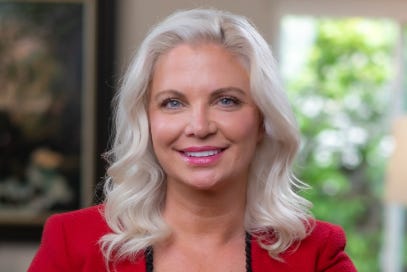In a powerful episode of Breaking Battlegrounds, former U.S. Marine and VetCom CEO Kate Monroe reacts to President Trump's proposed plan to redirect housing funds from illegal migrants to establish a national center for homeless veterans. While she praises the effort to finally prioritize veterans, Monroe critiques the "housing-first" model and proposes a more transformative solution: military-style base camps. These transitional environments would provide structure, support, and services like rehabilitation and job training—serving as a crucial bridge between life on the streets and permanent housing. Monroe emphasizes the urgency, citing that 35,000 veterans are currently homeless and 1.3 million are on the brink. Her message is clear: America has the resources—it just needs the will.
Transcript:
Chuck Warren: Welcome back to Breaking Battlegrounds. We have with us right now Kate Monroe. She is a former U.S. Marine Corps veteran and she is CEO of VetCom. Hello, Kate.
Kate Monroe: Hey there. Thanks for having me.
Chuck Warren: Thanks for coming on. So President Trump announced this week a plan to build a national center for homeless veterans using funds previously allocated by the Biden administration for housing illegal aliens to this country. What are your thoughts on that?
Kate Monroe: Well, I absolutely loved it. When I ran for Congress here in California, I was talking about the need to get our veterans off the street, and there's 35,000 of them actually on the street.
And I'm happy to see him making good on his promises. And he promised that he would focus on this, and he is. I do think I have a less expensive, better plan, but I'm happy to see them go that direction.
Chuck Warren: What do you like about his plan, and what is your less expensive plan?
Kate Monroe: Well, their plan, while it's amazing and they're reallocating resources, they're sort of spending the resources back to the veterans where they belong. It's a little bit of housing first or, you know, we build housing again and we put people inside. The trouble is going from the curb to a condo is not the correct journey.
There needs to be an intermediary step, which I would call a base camp. So it would have all the infrastructure of a base. It would have a cafeteria, a shower system, chapel, you know, rehabilitation, sort of a bunk system.
So it's, you know, it's going from like being on the street to infrastructure camping where we transform people and then we might transition them into that indoor condo like scenario.
But there needs to be some transformative time spent and a step in between the curb and the condo.
Chuck Warren: What percentage of veterans are homeless or have been homeless at one point in their life after serving?
Kate Monroe: Well, of the 20 million veterans, 10% of them are at the brink of homelessness as we speak.
So about 1.3 million veterans are at the brink of homelessness. 35,000 of them are actually homeless sleeping on the street.
And it's really the fault of our country because if we had the will to stop it, we could. We could have companies, more companies doing skill bridge, transitioning people better. We could be treating mental health on the exit journey from the service, but we don't. It's sort of, thank you for your service and go march on.
It's not a spirit of, how can I help? It's not like, Thanks for serving. Now get out.
Driena Sixto: Yeah. And you would think that if there's 40,000 out of the 800,000 total homeless in this country, approximately at 40,000 of those homeless people are veterans, that we would have the resources in this country to to really give them what they need if we were able to give them to millions of illegals for so many years. Right.
Kate Monroe: Well, I mean, think about being able to house, feed, clothe, give phones to give opportunity to some 10 million illegal migrants, but you can't get 35,000 homeless vets off the street. I've not met a single homeless veteran, and I've talked to 1,000 of them, so a pretty large sampling.
Not one of them said they wouldn't go to one of these base camps. What they don't want to do is go into a shelter in California for 28 days, lose all their stuff, and then get kicked back out on the street. They've seen that movie enough times, they're tired of watching it.
We have to do something with more runway.
Listen to the full episode of Breaking Battlegrounds anywhere you stream your podcasts!



